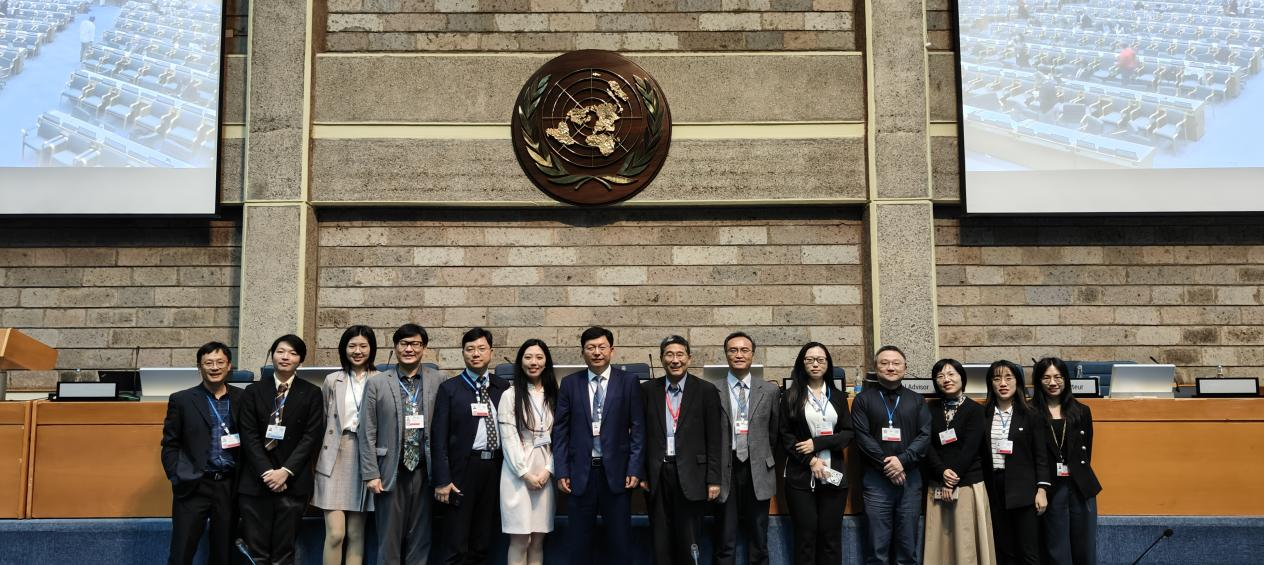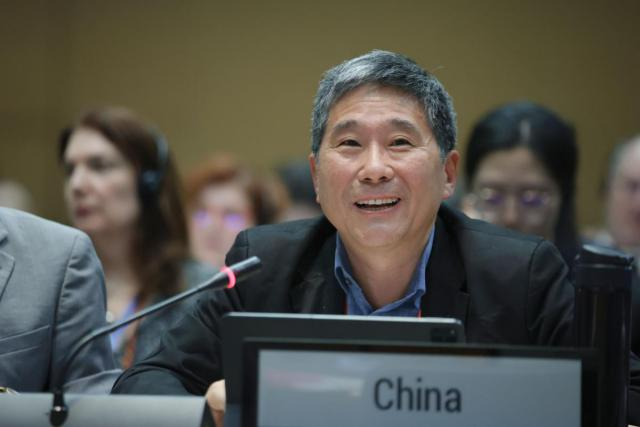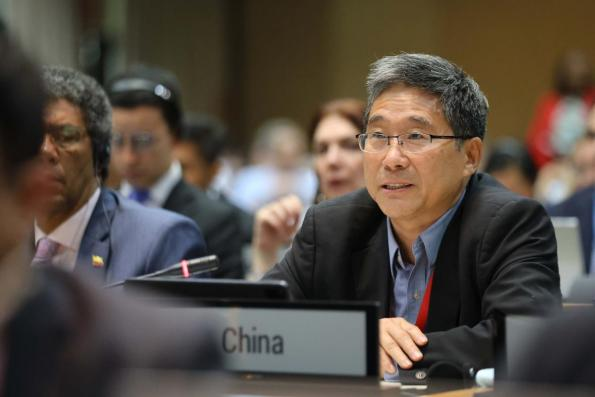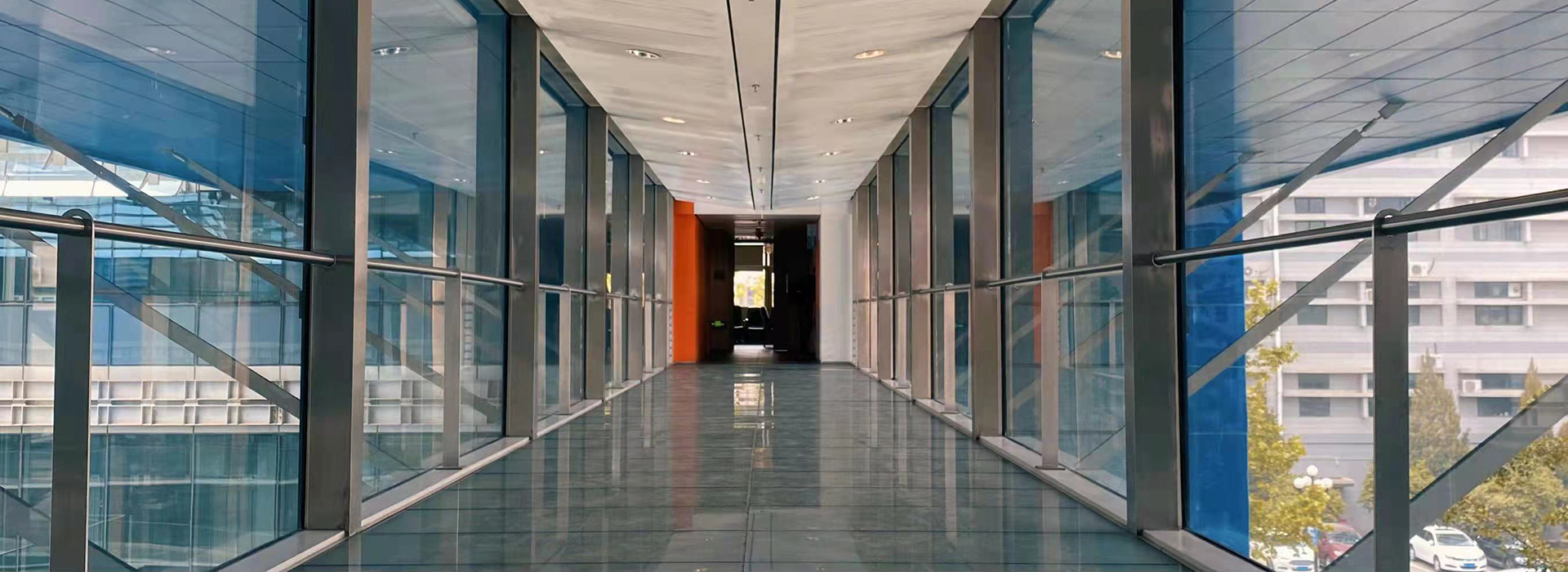The second session of the ad hoc open-ended working group on a science-policy panel to contribute further to the sound management of chemicals and waste and to prevent pollution (hereinafter referred to as "OEWG-2") was held in Nairobi, Kenya, from 11 to 15 December 2023. The conference attracted representatives from 114 member countries and 59 intergovernmental and non-governmental international organizations. Li Jinhui, Vice Chair of the Bureau, Professor at the School of Environment, Tsinghua University, and Executive Director of the Basel Convention Regional Centre for Asia and the Pacific (hereinafter referred to as "BCRC China"), and Wang Yawei, Project Assistant of the BCRC China, attended the conference as members of the Chinese delegation. In addition, they also mentored Dong Xiaohan and Liu Xuanyi, students from the Global Environment Program (GEP) of the School of Environment, Tsinghua University, to participate in the conference as observers of the BCRC China and to engage in learning.

Chinese Delegation Members and BCRC China Observers
The Secretary-General of the Jordanian Ministry of Environment, Mohammed Khasashneh, the Director of the Industry and Economy Division at the United Nations Environment Programme (UNEP), Sheila Aggarwal-Khan, and the Head of the Chemical Safety and Health Unit at the World Health Organization (WHO), Lesley Onyon, attended the conference and delivered speeches. The conference was centered on the establishment of a science-policy panel (hereinafter referred to as "SPP"), which aims to further the sound management of chemicals and waste and prevent pollution. It encompassed a variety of sessions including Plenary meetings, Bureau meetings, regional coordination meetings, contact group meetings, and informal consultations. At the plenary session, the attendees adopted the output reports and meeting reports of four contact groups. These groups discussed the text on four aspects: the scope, functions, operational principles and conflicts of interest of SPP; the institutional arrangements and relations with major stakeholders; the processes and procedures related to the work of SPP; and the work and budget during the intersessional period.
From December 11th to 15th, Professor Li Jinhui and Ms. Saqlain Syedah from Pakistan co-chaired the regional coordination meeting. They held closed-door sessions on the progress of the contact groups and the opinions of representatives from countries in the Asia-Pacific Group. Three regional group statements were ultimately formulated. On December 11th, Professor Li Jinhui delivered a speech on behalf of the Asia-Pacific Group. He suggested that the SPP should focus on expanding the capacity of scientists in all relevant fields, and should support and integrate existing mechanisms related to chemicals and waste. He also emphasized the importance of capacity building and the necessity of providing financial resources, technical assistance, and technology transfer to developing countries. That afternoon, Professor Li Jinhui presided over an informal consultation meeting. Along with 30 representatives from countries such as Belgium and France, as well as the co-coordinators of the fourth contact group and secretariat representatives, a total of 30 participants engaged in informal dialogue on budget issues. The meeting clarified the definitions of terms in document INF7 and discussed the financing plan for the 2024 funding gap. Additionally, the meeting provided detailed clarification on the budget, which provided robust support for the proceedings of the fourth contact group.

Professor Li Jinhui speaks on behalf of the Asia-Pacific Group
On December 15th, at the closing ceremony of the plenary session, the four contact groups submitted the outcomes of their discussed texts. The conference ultimately produced one meeting report and six meeting documents. Professor Li Jinhui, representing the Asia-Pacific Group, delivered a speech and suggested that future meetings and intersessional work should ensure that all representatives have ample time and opportunities to develop into the discussions surrounding the draft documents. He also emphasized the importance of ensuring gender and regional balance.

Professor Li Jinhui speaks on behalf of the Asia-Pacific Group
The Fifth session of the United Nations Environment Assembly (UNEA-5) has recognized the importance of chemical and pollution action on par with climate and nature action, and has incorporated it into its strategic considerations. During the resumed session of UNEA-5 (UNEA-5.2) in March 2022, Resolution 5/8 was adopted and the SPP was decided to establish. The SPP will determine its scope based on an integrated approach to issues related to chemicals, waste, and pollution, while maintaining specificity and flexibility. On January 30th, 2023, the OEWG 1.2 opened in Bangkok, Thailand, where Professor Li Jinhui was elected as the Vice Chair of the OEWG Bureau. BCRC China, a long-term member of the national delegation, has consistently supported the Ministry of Ecology and Environment in leading negotiations for international environmental conventions and frameworks, including the United Nations Environment Assembly, the Basel Convention, the Stockholm Convention, the Intergovernmental Negotiating Committee to develop an international legally binding instrument on plastic pollution, including in the marine environment (INC), the Minamata Convention on Mercury, and the Strategic Approach to International Chemicals Management (SAICM). During this conference, the BCRC China's representatives participated fully in plenary and contact group meetings, and provided strong technical support throughout the event.





